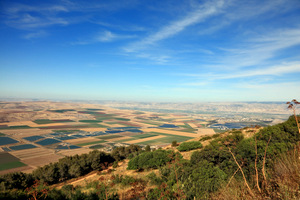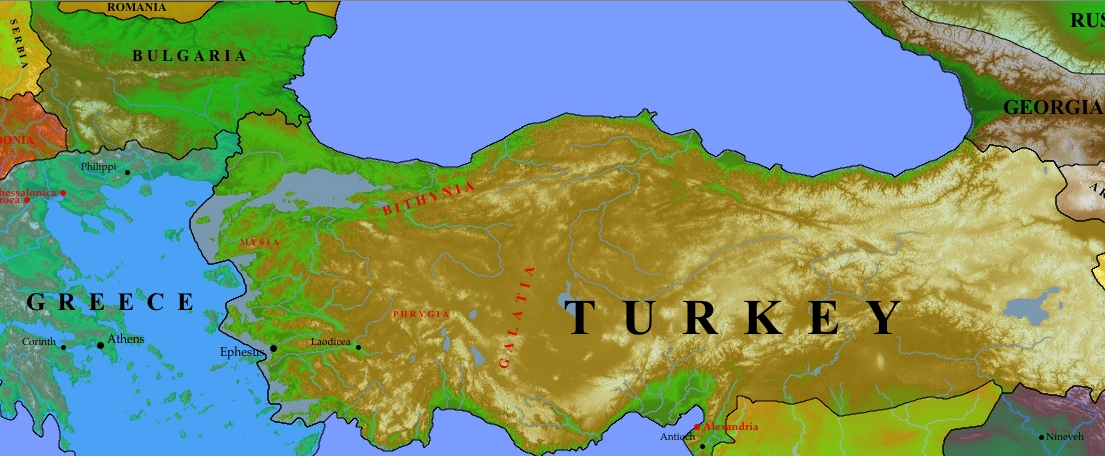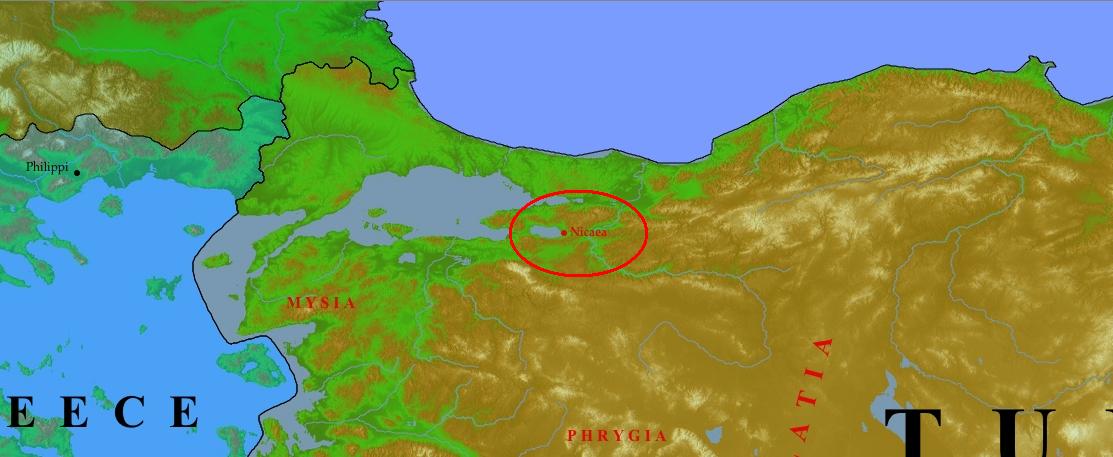|
כּי תבוא - "When You Enter" |
||
|
 |
|
Deuteronomy 26:1
"Then it shall be, when you enter the land which the LORD your G-d gives you as an inheritance, and you possess it and live in it,
| << Previous (Ki Tetze) | Next (Nitzavim) >> |
The Hebrew Word
Ki (Strong's #3588) is a primitive particle indicating causal relations. It is used 1235 times in 1115 verses in the Tanakh.
Tavo comes from the word bo (Strong's #935) is a primitive rooot which means "to go". It is used 2562 times in 2290 verses in the Tanakh.
First use in Scripture
The first time ki is used in Scripture is in Genesis 2:3.
Genesis 2:3
Then G-d blessed the seventh day and sanctified it, because in it He rested from all His work which G-d had created and made.
The first time bo is used in Scripture is in Genesis 2:19.
Genesis 2:19
Out of the ground the LORD God formed every beast of the field and every bird of the sky, and brought [lit: caused them to go] them to the man to see what he would call them; and whatever the man called a living creature, that was its name.
Last use in Scripture
The last time ki is used in Scripture is in Malachi 3:8.
Malachi 3:8
"Will a man rob God? Yet you are robbing Me! But you say, 'How have we robbed You?' In tithes and offerings.
The last time bo is found in Scripture is in Malachi 4:6.
Malachi 4:6
"He will restore the hearts of the fathers to their children and the hearts of the children to their fathers, so that I will not come and smite the land with a curse."
Parashah Outline
- First Fruits - Deuteronomy 26:1
- The Curses of Mount Eval - Deuteronomy 27:1
- Blessings at Gerizin - Deuteronomy 28:1
- Consequences of Disobedience - Deuteronomy 28:15
- The Covenant in Moav - Deuteronomy 29:1
Portraits of Messiah
Verse by Verse Notes
Other Observations
Moshe speaks to the sons of Israel in Deuteronomy 29 as he makes the covenant at Moav. In verse 4 he makes this statement:
Deuteronomy 29:4
Yet to this day the LORD has not given you a heart to know, nor eyes to see, nor ears to hear.
Later in Scripture the prophet Dani'el records this statement from G-d:
Daniel 12:4
"But as for you, Daniel, conceal these words and seal up the book until the end of time; many will go back and forth, and knowledge will increase."
Messiah speaks frequently of hearts that know, eyes that see, and ears that hear:
Matthew 13:15-16
FOR THE HEART OF THIS PEOPLE HAS BECOME DULL, WITH THEIR EARS THEY SCARCELY HEAR, AND THEY HAVE CLOSED THEIR EYES, OTHERWISE THEY WOULD SEE WITH THEIR EYES, HEAR WITH THEIR EARS, AND UNDERSTAND WITH THEIR HEART AND RETURN, AND I WOULD HEAL THEM.' But blessed are your eyes, because they see; and your ears, because they hear.
Matthew 11:15
He who has ears to hear, let him hear.
Paul writes of this also in his letter to the Romans:
Roman 11:7-8
What then? What Israel is seeking, it has not obtained, but those who were chosen obtained it, and the rest were hardened; just as it is written, "G-d GAVE THEM A SPIRIT OF STUPOR, EYES TO SEE NOT AND EARS TO HEAR NOT, DOWN TO THIS VERY DAY."
In the Deuteronomy passage G-d tells the children of Israel that they do not have a heart to know and in Dani'el He says that knowledge will increase. This would suggest a change in heart... that they will have a heart to know. Does Scripture support this idea?
Yes. The prophet Y'chezk'el [Ezekiel] gives us two references to this:
Ezekiel 11:19
"When they come there, they will remove all its detestable things and all its abominations from it. And I will give them one heart, and put a new spirit within them. And I will take the heart of stone out of their flesh and give them a heart of flesh, that they may walk in My statutes and keep My ordinances and do them. Then they will be My people, and I shall be their G-d.
Ezekiel 36:24
"For I will take you [Israel] from the nations, gather you from all the lands and bring you into your own land. Then I will sprinkle clean water on you, and you will be clean; I will cleanse you from all your filthiness and from all your idols. Moreover, I will give you a new heart and put a new spirit within you; and I will remove the heart of stone from your flesh and give you a heart of flesh. I will put My Spirit within you and cause you to walk in My statutes, and you will be careful to observe My ordinances.
When we consider that G-d has given us a new Spirit and given us a heart of flesh we should be reminded that with it comes His intention to cause us to walk in His statutes and be careful to observe His ordinances.
The Spirit of Yeshua
There are two dozen direct references to the "Spirit of God" in Scripture and over 90 references to the "Holy Spirit". Interestingly there is only a single reference to the "Spirit of Yeshua" in the whole of Scripture. It is found in the book of Acts:
Acts 16:6-9
They passed through the Phrygian and Galatian region, having been forbidden by the Holy Spirit to speak the word in Asia; and after they came to Mysia, they were trying to go into Bithynia, and the Spirit of Jesus did not permit them; and passing by Mysia, they came down to Troas.
Where else is Bithynia mentioned in Scripture? Peter begins his letter by addressing it to a number of groups including believers in Bithynia:
1 Peter 1:1
Peter, an apostle of Jesus Christ, To those who reside as aliens, scattered throughout Pontus, Galatia, Cappadocia, Asia, and Bithynia, who are chosen according to the foreknowledge of God the Father, by the sanctifying work of the Spirit, to obey Jesus Christ and be sprinkled with His blood: May grace and peace be yours in the fullest measure.
 Where is Bithynia located and what can we learn about it? The "why" of the prohibition is never given in Scripture but what information can we glean from history that might give us a clue?
Where is Bithynia located and what can we learn about it? The "why" of the prohibition is never given in Scripture but what information can we glean from history that might give us a clue?
Bithynia was an ancient country of northwest Asia Minor in present-day Turkey. Originally inhabited by Thracians, it was absorbed into the Roman Empire by the end of the first century B.C.1 [See map at right. Click to enlarge]. Thrace and the Thracians are not directly mentioned in Scripture, however, Josephus indicates that Thiras (the nation founded by the grandson of Noach) is Thrace:
Now they were the grandchildren of Noah, in honor of whom names were imposed on the nations by those that first seized upon them. Japhet, the son of Noah, had seven sons: they inhabited so, that, beginning at the mountains Taurus and Amanus, they proceeded along Asia, as far as the river Tansis, and along Europe to Cadiz; and settling themselves on the lands which they light upon, which none had inhabited before, they called the nations by their own names....Thiras also called those whom he ruled over Thirasians; but the Greeks changed the name into Thracians. And thus many were the countries that had the children of Japhet for their inhabitants.2
"Navigating the Bible" refers to Targum Yonatan as identifying Tiras as "Tarkey".3 Tiras was the son of Yephet [Japheth] the son of Noach. Genesis 8:4 tells us that Noach's ark landed in the mountains of Ararat. Given that Ararat is in Turkey, it would not be a great leap of logic to find Noach's children living in that region.
 Nicaea (Nicea) is in this region [see map at right] where Paul, Luke, and their companions were not allowed to enter. Nicaea is known today as Iznik, Turkey. This is the city in which the 318 "Fathers" (according to tradition) of the Greek speaking churches met for the Council of Nicea in 325 AD. It was this council that began a long history of the "official" adoption of pagan traditions (i.e. the pagan fertility festival of Astarte/ Ishtar/ Eostre/ Easter) into the Christian faith.
Nicaea (Nicea) is in this region [see map at right] where Paul, Luke, and their companions were not allowed to enter. Nicaea is known today as Iznik, Turkey. This is the city in which the 318 "Fathers" (according to tradition) of the Greek speaking churches met for the Council of Nicea in 325 AD. It was this council that began a long history of the "official" adoption of pagan traditions (i.e. the pagan fertility festival of Astarte/ Ishtar/ Eostre/ Easter) into the Christian faith.
Some have speculated that the Spirit of Yeshua prohibited Paul from entering the area of Bithynia served to prevent the believers there from claiming any special authority from Paul's teaching. This "special authority" might have been used to lend credence to the council that was convened there.
6 of the traditional 613 commandments is found in this parashah:
- 439- To read the Torah portion pertaining to the presentation of first fruits- Deuteronomy 26:5
- 436- To read the confession of tithes every fourth and seventh year - Deuteronomy 26:13
- 429- Do not spend its redemption money on anything but food, drink, or ointment - Deuteronomy 26:14
- 430- Do not eat ma'aser sheni while impure - Deuteronomy 26:14
- 431- A mourner on the first day after death must not eat ma'aser sheni - Deuteronomy 26:14
- 9- To emulate His ways - Deuteronomy 28:9
Pending
Pending
Pending
Pending
1115 verses that include ki (Strong's #3588)
View list of verses on BlueLetterBible.com
2290 verses that include bo (Strong's #935)
View list of verses on BlueLetterBible.com
Footnotes
1. Bithynia: Excerpted from The American Heritage® Dictionary [back]2. Josephus, Antiquities of the Jews, Book 1, Chapter 6, Paragraph 1 [back]
3. Navigating the Bible: Noach (09/28/2008) at http://bible.ort.org/books/Torahd5.asp?action=displayid&id=237#C112 [back]